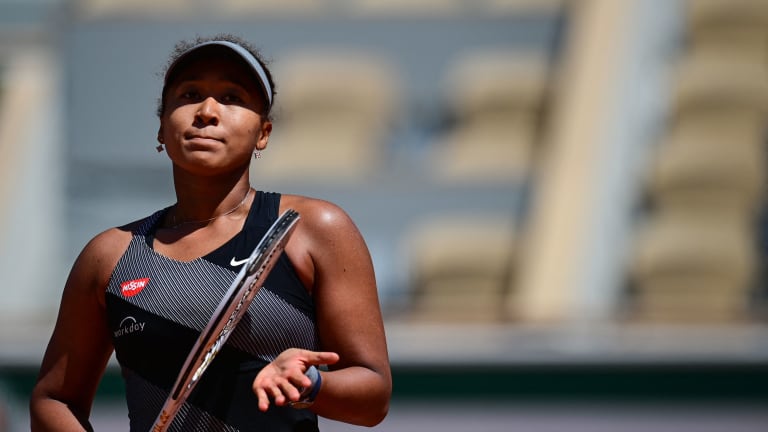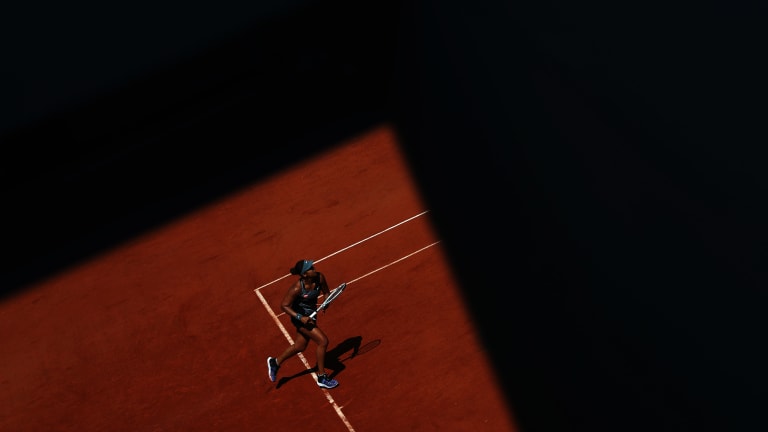Hi Joel,
“That escalated quickly” are the words that come to mind when I think about Naomi Osaka’s withdrawal from Roland Garros on Monday. Just a week ago, she was the No. 2 seed and champion at two of the last three Grand Slam tournaments. As a newly named chair of the Met Gala in New York and one of the richest athletes in any sport, Osaka seemed to have the world on a string. Then she announced that she wouldn’t be doing press conferences in Paris, and everything exploded
When Osaka released her statement, I knew it would make waves in the tennis-media world, where the post-match presser is sacrosanct. But I’m surprised that it struck such a polarizing nerve in the wider world as well. There doesn’t seem to be any middle ground when it comes to Osaka’s decision: From what I’ve seen on social media, people either believe she’s taking an overdue stand for the rights of athletes, and for mental health; or they think she’s a hypersensitive Gen Zer with no respect for the sport or her responsibilities toward it.
I can commiserate with Osaka when she says she feels anxious about getting up in front of the media. Those anxieties may be foreign to non-introverts, but I know from experience that they can be overwhelming to the person seized by them. I also understand that questions at press conferences are often repetitive, and that players may feel as if their time can be better spent at important tournaments than having to do one every time they play.
On the other hand, I understand the media’s viewpoint. Press conferences, for all of their limitations, are the only reliable form of access we have during big events, and the thought of star players being allowed to skip them whenever they want is the stuff of reporters’ nightmares. The issue is more than simply not being able to hear from Osaka; it’s the precedent that would be set.
What we can probably agree on is that the situation could have been handled better on both sides. Osaka sprung her boycott on Roland Garros just a few days before the event started, offered little explanation, and essentially went silent after that. Then the Grand Slams immediately went nuclear by firing back with a heavy-handed statement threatening the sport’s biggest young star with defaults and suspensions.
Hopefully, in the near future, saner heads can prevail; Osaka can explain her concerns and her ideas for how to proceed in more specifics; and the sport can find a way to work with her, without unduly restricting media access. I’ll be interested not just to hear what Osaka says next, but also to hear whether her fellow players agree with her, or are willing to join her in her fight.
Joel, where do you come down on Osaka’s unfortunate withdrawal?

